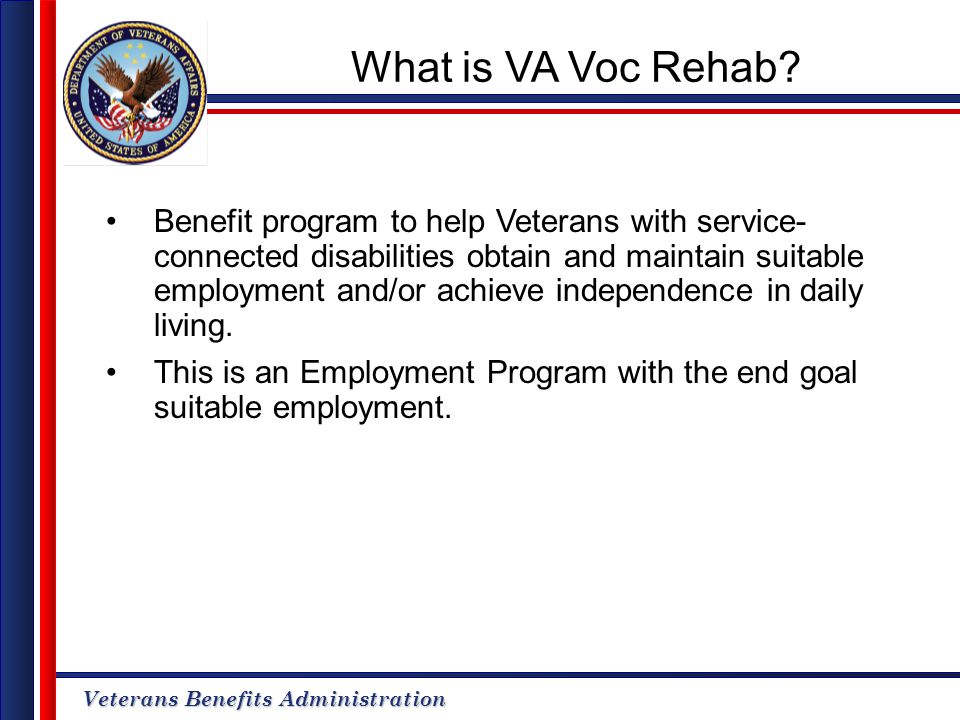Employment rehabilitation. Federal ED funds support services that help people with disabilities get involved in the labor force. Treatment of compound usage conditions is qualified for funding. Funds are channeled to the State companies accountable for vocational rehab. To learn more see www.ed.gov. Kid's protective services. Title IV of the Social Security Act offers financing for foster care and services to prevent kid abuse and disregard. Medicaid likewise covers these kids, as they are a compulsory eligibility group. For more details see www.acf.hhs.gov/programs/cb/index.htm. Ryan White. The Federal Ryan White CARE Act, enacted in 1990, offers healthcare for individuals with HIV disease. Under Title I of the Ryan White CARE Act, which supplies emergency support to Qualified City that are most badly affected by the HIV/AIDS epidemic, funds are available for drug abuse treatment. For more details see www.hab.hrsa.gov. Both State and local CJ/JJ systems purchase compound abuse treatment services. The way in which these systems work varies across areas. The following are typical parts of these systems: State corrections systems may provide funds for treatment of offenders who are going back to the neighborhood, through parole workplaces, midway houses, or residential reformatories. Neighborhood drug courts may send out low-risk, nonviolent offenders to substance abuse treatment in lieu of incarcerationprograms can be under agreement to provide this treatment. Correctional property facilities serve transgressors returning from a State correctional system; the programs may extend contracts for substance abuse treatment to avoid relapse of treated wrongdoers. Suppliers should understand the culture, values, and needs of the CJ/JJ system so they can establish responsive services for this unique needs population. To find out more, see IDEA 21, Integrating Alcohol and Other Substance Abuse Treatment With Diversion for Juveniles in the Justice System( CSAT 1995b ), TIP 30, Connection of Wrongdoer Treatment for Substance Usage Disorders From Organization to Community (CSAT 1998b), and POINTER 44, Drug Abuse Treatment for Grownups in the Lawbreaker Justice System( CSAT 2005b). The Byrne Solution Grant Program awards grants to States to enhance.
the performance of the criminal justice system. One of the 26 Byrne Solution Grant purpose locations is supplying programs that determine and fulfill the treatment requirements of adult and juvenile culprits who are drug and alcohol reliant. Nevertheless, the accessibility of Byrne Formula Grant funds depends upon yearly Congressional appropriations and declines have been proposed for funding recently. The yearly accessibility of these funds depends in part on State fiscal conditions. Local public schools may provide financing for assessments; nevertheless, they seldom pay for continuous treatment. Some services might be reimbursable under the unique entitlements for children with disabilities. Personalsources of income include a range of entities from large MCOs to local or self-insured national companies. In some cases, a health insurance might cover some substance abuse treatments under the psychological health advantage part of their plan; others may provide protection through the medical element. Oftentimes, drug abuse treatment benefits, when used, are supplied through Managed Behavioral Health Care Organizations (MBHOs)( see" Working In Today's Managed Care Environment" listed below for a more in-depth conversation of handled care arrangements). 1998), it may be tough to get employers' attention, despite the high profile that compound abuse problems in some cases present. In basic, three broad categories of private financing may be distinguished: Agreements with health insurance, MCOs, and MBHOs. Direct service contracts with regional employers. Regional companies may contract straight with substance abuse services suppliers if the benefits used by their health strategies are insufficient. Some employers have EAPs that can provide direct service agreements for a particular cleansing program. By establishing relationships with people in the community, an administrator can discover brand-new sources for assistance of capital and operations. Even if a source is unwilling to offer funds to support treatment services straight, other elements of program advancement, organizational growth, and operations or devices may be qualified for assistance. Some possible sources include Fundraisers. Individuals who do fundraising can help the program develop a campaign. Many States and the District of Columbia require that charitable companies sign up and report.
to a governmental authority before they obtain contributions in their jurisdiction (a list of State managing authorities is available at www.labyrinthinc.com/index (how to get into drug rehab).asp). A program may qualify as a recipient of funds for capital, operations, or other types of assistance such as board advancement from structures, the Neighborhood Chest, United Way( national.unitedway.org), or other charities. To find out more see www.fdncenter.org.

Alumni. Graduates from a program may contribute cash to the program or offer support for clients. Regional institution of higher learnings may require internship slots for their students who are preparing careers in human services. Volunteers. Some programs utilize volunteers in numerous capabilities. Sources include local retirement organizations and faith-based firms. Neighborhood groups. Faith-based firms and recreation center might let the program use spaces for.
Excitement About How Many Drug Rehab Centers In Maryland
conferences, alumni groups, healing support system, or classes. Local stores and vendors. Local companies may contribute useful materials such as snacks, workplace supplies, or even computer systems. In addition to SAMHSA's other functions, such as technical support, helping communities utilize research findings to carry out efficient treatment programs, and funding of avoidance and treatment, the institutes of the National Institutes of Health conduct.
research study on best practices in compound abuse treatment. For existing financing opportunities, check out the National Institute on Drug Abuse Web website( www.nida.nih.gov) and the National Institute on Alcohol Abuse and Alcohol https://t.co/Zufq0jpr8m?amp=1 addiction Web website( www.niaaa.nih.gov). Federal government agencies and private foundations provide funding through competitive grants. Grant cash generally is designated for discrete.
projects, such as developing a videotape on family issues, providing child care services in a program for females, enhancing the cultural skills of personnel members, or dealing with underserved populations. A program can hire a specialist to write the application or utilize its own planning or research study personnel, if offered. Effective grant applications attend to locations of genuine need, propose concepts worthwhile of assistance, reveal these.

concepts well, and explicitly follow the requirements of the ask for application or proposal. To design a fundable job, the program might need to develop links with other resources. It is specifically crucial when using a specialist to have program personnel closely associated with the process of developing a grant application to guarantee that affirmations in the application are totally aligned with agency capabilities. Programs that fail to include their own personnel in the grant application procedure risk falling under the "implementation trap" whena grant is granted for projects they are not prepared to perform. See the text box listed below for sources of information on grants for treatment and detoxing programs. SAMHSA provides info about the grants it provides at www.samhsa.gov/grants/index.html. Information on grants throughout the Federal federal government is offered from www.grants.gov. The Web website www.cybergrants.com offers information about business foundations. The National Center on Addiction and Substance.
The Ultimate Guide To What Drug Rehab Centres Take Medcare
Abuse at Columbia University's Website at www (how to start a drug rehab program).casacolumbia.org provides links to several valuable sites.